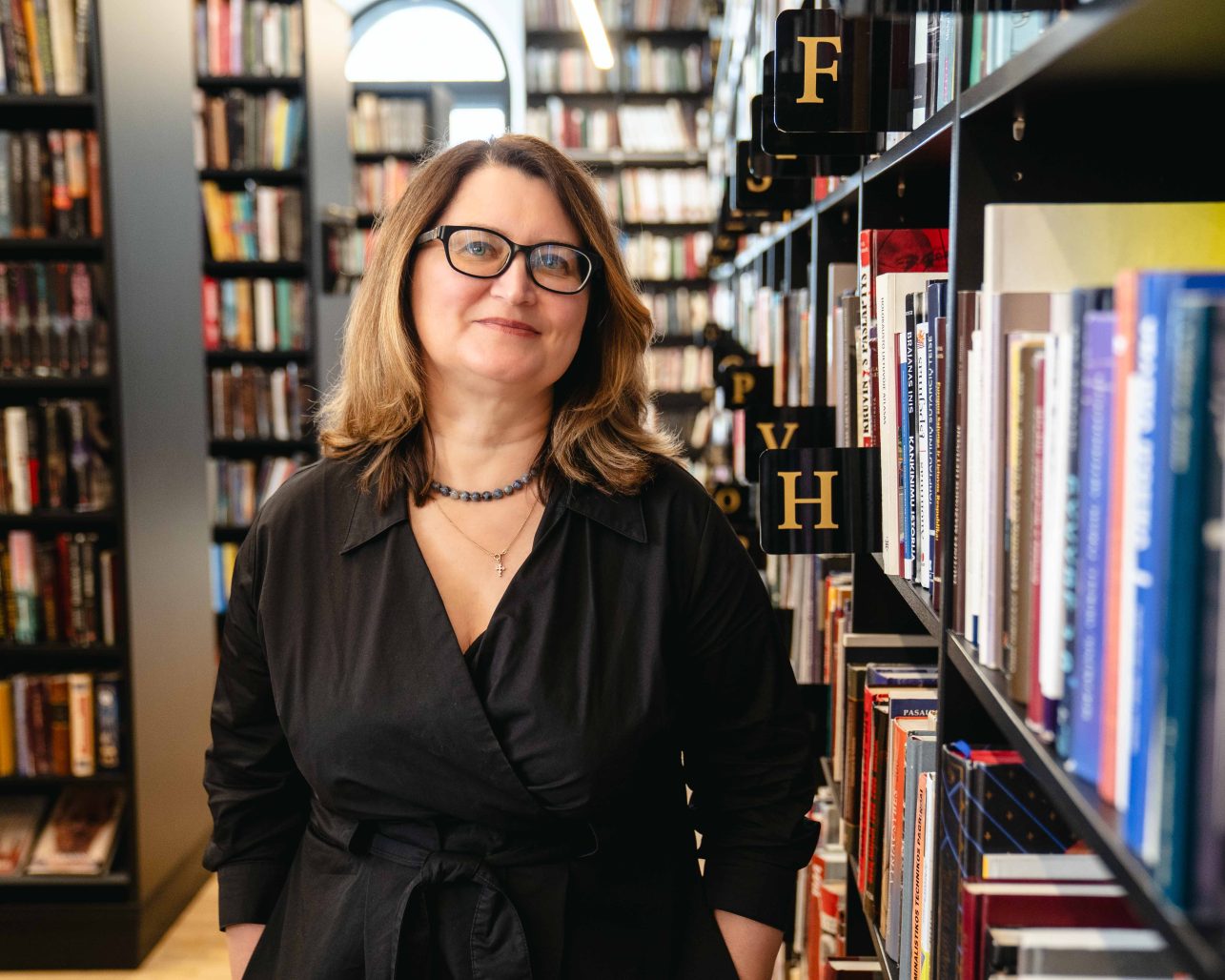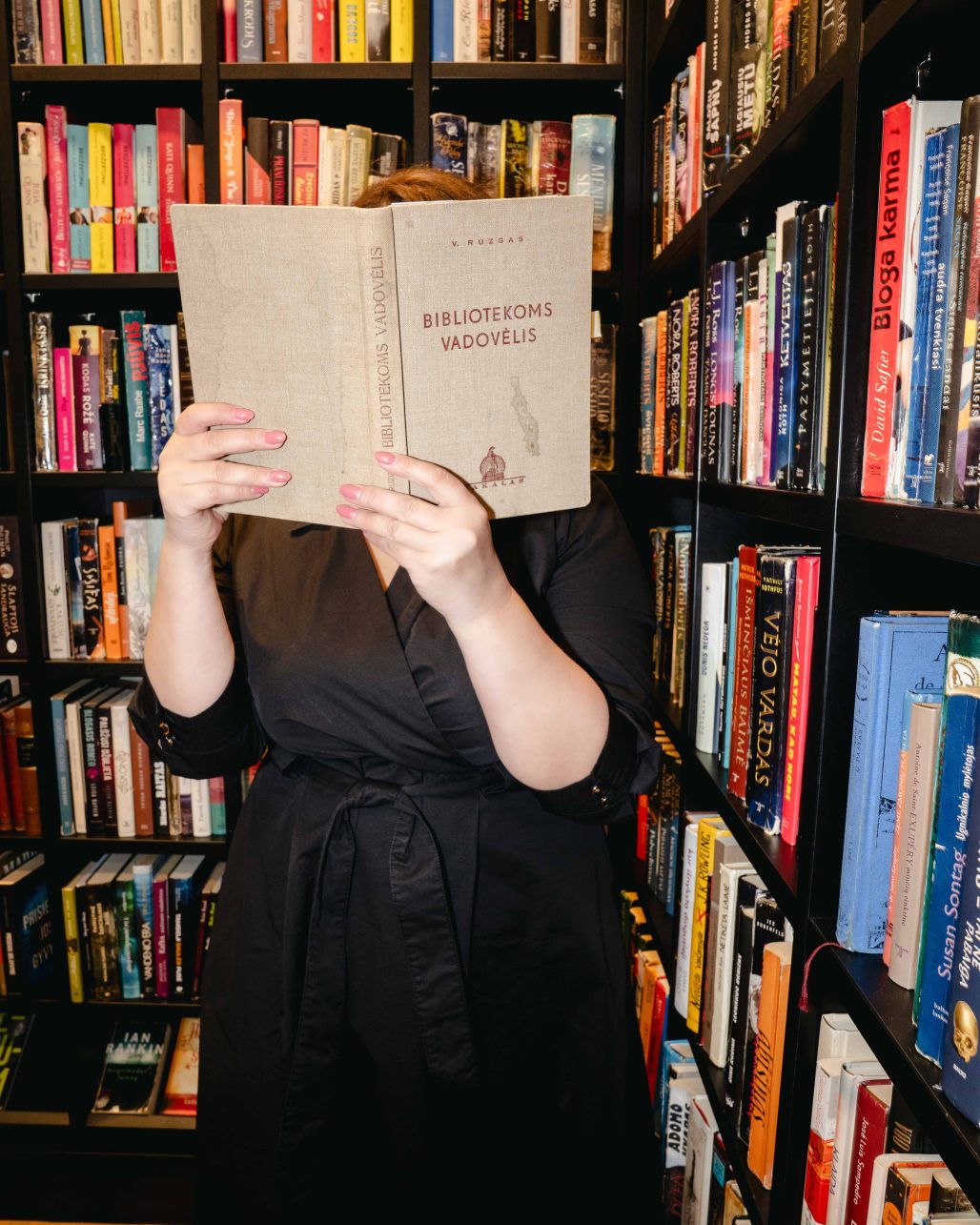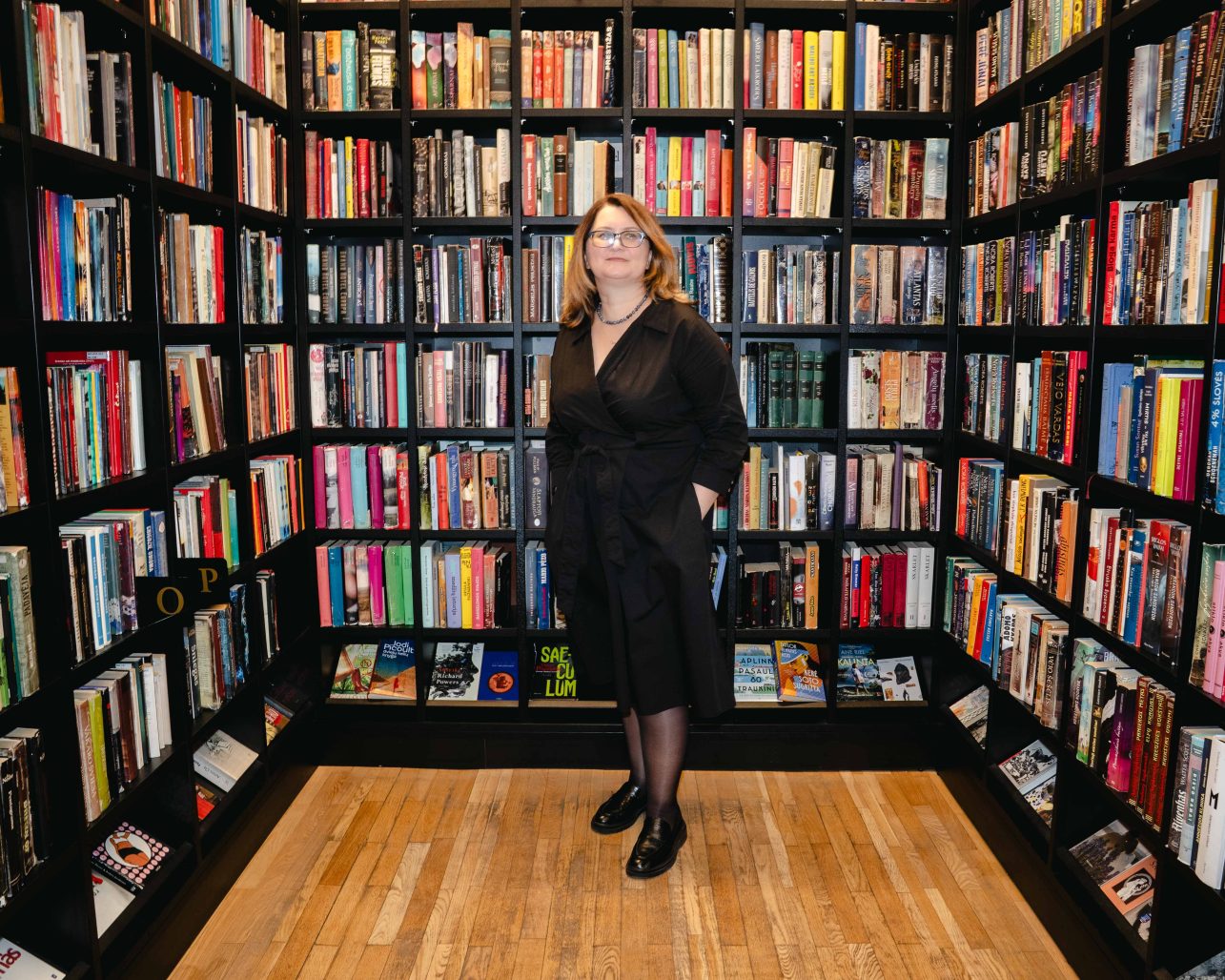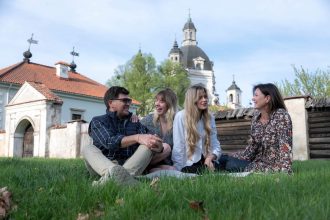Kaunas Vincas Kudirka Library, which is celebrating its centenary, is a place where the past and the future meet and knowledge and creativity merge with everyday city life. We spoke with the head of the library, Nomeda Domeikienė, about the library’s role in recent decades, its challenges, and achievements. During the interview, Nomeda shared her experiences and her vision of how the library will continue its mission in the future: nurturing openness, freedom, and access to knowledge.

What does this library on Laisvės Avenue mean to you as an urban space?
When I started working, the library was not so prominent in the city’s culture, and we had fewer readers. But now I see that the library has become like a continuation of Laisvės Avenue – people come and go, and sometimes there are not enough seats in the reading room, so I think that now it is as I imagined it should be: the library is a place where you can come in, take what you need, go out again, come in again, freely, without restrictions, you can meet people, the same people who walk along Laisvės Avenue: actors, writers, journalists, neighbors, co-workers, or government officials. It seems to me that the library has become a very important part of Laisvės Avenue, it is alive and active. Of course, everything begins and ends with people.
How did your journey in this library begin and what has driven you forward so far?
I didn’t get into my chosen studies after graduating from high school, so I just came to the library looking for a job. I started working in the Bibliography and Information Department. In the first years, it seemed like just a job – maybe you don’t consider its meaning when you’re young. I dislike being sedentary, both in my personal life and at work. It was convenient: the work and university were very close to each other. It didn’t work out, because I chose programming, which was not a field close to me, so after stopping I continued working in the library.
In the time I have been working here, my duties have changed, as have the library’s visitors, books, and attitudes towards the library and its services. The library’s activities have become more dynamic, now we had legal acts of the restored state, and foreign literature on economics, law, and politics, and access to these information resources has become very important. That’s when students began to visit – we are located at the intersection of two universities – since information was scarce, as internet resources were not yet as extensive or abundant. The first computer for our visitors probably appeared in 1997, in the Bibliography and Information Department. First, the staff themselves had to learn how to use it in order to teach the visitors.
Continuous improvement and reading were essential, we would go through all the received books and journals ourselves and describe everything by hand since there were no computers or databases. I remember that even when I went on vacation, I would always buy newspapers and couldn’t read them in a relaxed way – my mind would immediately start composing a bibliographic entry. I was always surrounded by people I could learn from, working alongside educated, professional colleagues.
What moments in this job are most important to you?
For me, perhaps the most important thing was that I was able to do something I truly enjoyed. My attitude toward work aligned with the library’s needs, and that became my greatest motivation. I realized that we provide value to people, and that is what matters most. If your social mission is to be useful, you will certainly find meaning in any job. Although the significance of the library during the learning process can sometimes be hard to measure, I believe that a wise person will understand the immense value it brings. Knowledge and information don’t appear out of nowhere – the library’s role in this chain is indispensable.
What, in your opinion, was the significance of this library for the city when it was first founded?
When the Vincas Kudirka Library-Reading Room was established on April 24, 1925, the Lithuanian state had only recently been reestablished, Kaunas had become the capital, and the library’s significance was immense. At that time, books and periodicals were not as freely accessible, so the library played a crucial role in public education and literacy development. A great deal of work was done by the library’s founder, Vincas Ruzgas, who organized book exhibitions and promoted reading. The importance of Vincas Ruzgas’ contributions is significant on a national level as well. He organized training courses for librarians and was one of the founders of the Lithuanian Librarians’ Association. His work laid a solid foundation for our library as well as the library science in the entire country.

Over the century, the library has changed and moved from one place to another. What has remained unchanged and significant to this day?
When we started to look into the library’s history, we found out that it has been forced to move from one place to another many times. But in my opinion, the significance of the library has remained the same: it’s not just shelves and books – it’s a certain spirit, a kind of pulse, created by the people who work here and by the people who visit it. I think that while the physical library has changed, its mission and spirit have remained the same.
What initiatives or daily encounters show you that the library is still a vibrant and relevant institution for the city?
By organizing numerous events, educational programs, workshops, and other activities, we can see how much our community needs and appreciates them. But what brings me the most joy is simply seeing people read books. There was once talk that with the rise of e-books, people would stop coming to libraries, but that prediction did not come true. Also, it’s not true that only seniors visit libraries, people of all age groups come seeking wisdom and answers in books. For many, reading is a way to find peace, and sometimes even a way out of difficult situations. That lively process of people coming and choosing books really makes me happy. Then you realize that your work has meaning. I try not to get upset if books sometimes “disappear” or return to the library “read to shreds”. As one of my colleague’s professors used to say, “It’s better for a book to spend too much time with a reader than to sit unused on a shelf.”
What horizons do you see today? What might the library look like in ten or twenty years?
No matter how the library changes or evolves in the future, its mission will always remain the same: to educate the public. I would like people to be able to enter the library without any obstacles. For example, a person with a baby stroller shouldn’t have to call someone just to be let in. I strive to make it as easy as possible for people to access the library. And I also wish for as much freedom as possible inside the library.

What do you see as the most important areas of growth for the library at the moment?
In my opinion, the most important areas now are media and information literacy and the development of critical thinking. Library staff not only have the ability but also the responsibility to help people navigate through this web of information, which can sometimes be confusing. It is no coincidence that the Ministry of Culture has been particularly supportive of information literacy initiatives and projects, which shows that libraries need to play an active role in these important processes.
If you had the chance to leave a message for future generations of library visitors, what would it be?
When we celebrated the library’s 90th anniversary, my colleagues and I put together our wishes for the future of the library. I don’t remember what I wrote then, but now I wish people to seek real information and trust libraries.
What does the library’s centenary allow you to understand about time, community, and culture?
Throughout our conversation, one thought never left my mind: the importance of the library is undeniable and the way libraries change according to the needs of society shows that if libraries were no longer needed, they would simply disappear. The library’s ability to change and the community’s ability to expand it, show its usefulness and necessity.
kaunobiblioteka.lt




